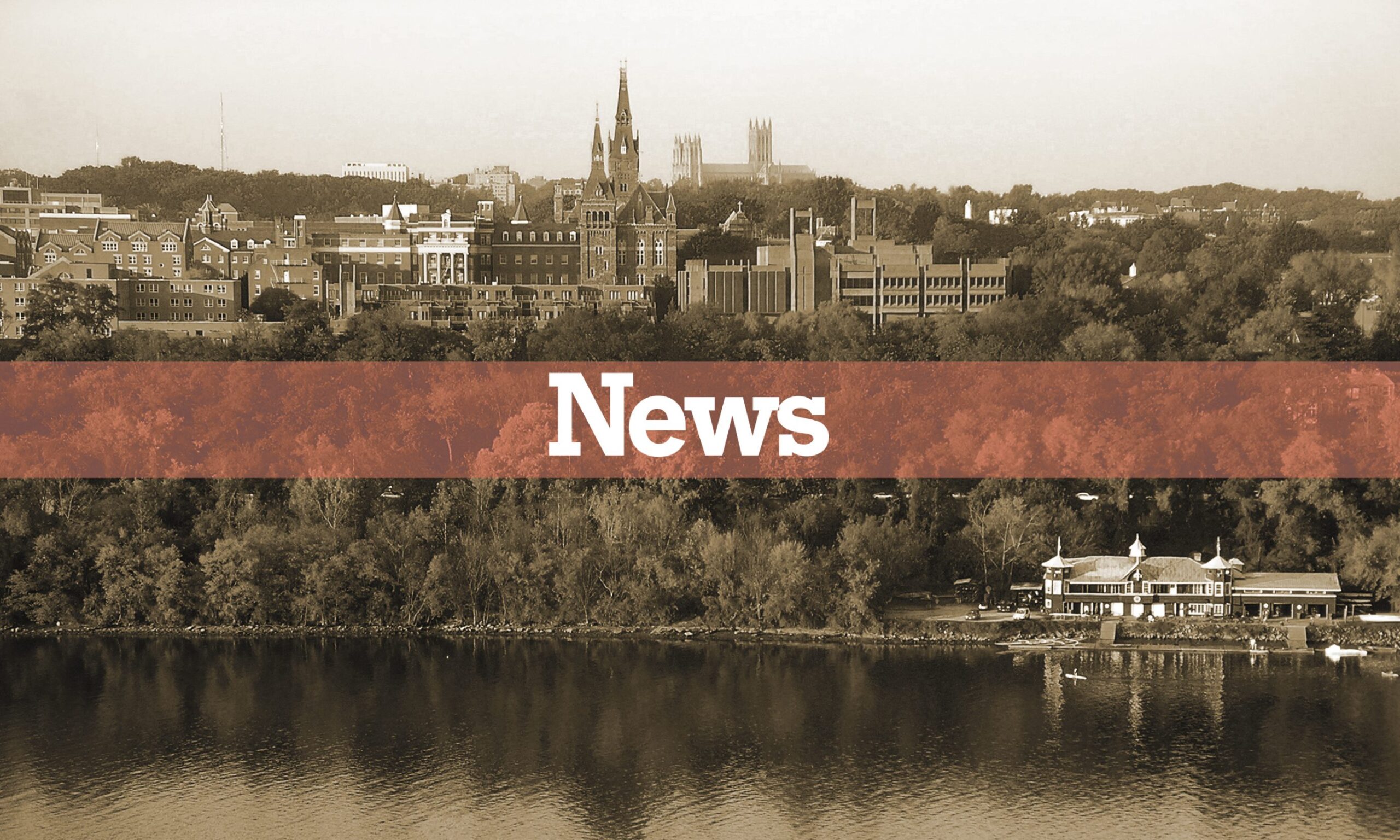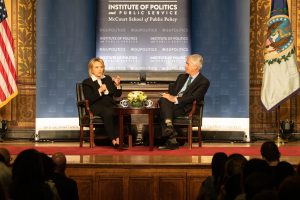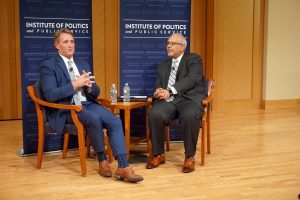On Jan. 23, three young mayors from across the country gathered in the Healy Family Student Center to discuss the future of “millennials” as leaders in local politics.
Hosted by the Georgetown Institute of Politics and Public Service, the panel, called “What’s Working at City Hall: A Conversation on Challenges, Cities, and Careers with the Country’s Leading Millennial Mayors,” included three young mayors: Mayor Pete Buttigieg of South Bend, Ind., Mayor Lydia Mihalik of Findlay, Ohio, Mayor Francis Suarez of Miami, Fla.
Georgetown law and public policy professor Sheila Foster moderated the discussion between the mayers, who had arrived early for the 86th Winter Meeting of the U.S. Conference of Mayors in D.C.
Foster questioned the mayors on how they worked in local politics in the face of partisan gridlock in Washington and negative stereotypes about “millennials,” a generation encompassing people who have come into young adulthood in the early 21st century. Panelists discussed how their identity as millenials led to a willingness to search for new answers to problems facing their cities work.
“The thing about millenials is we’re not afraid to ask questions,” Milahlik said.
Panelists discussed the pragmatic attitude needed to govern on the local level in order to go beyond partisan divides to address issues like the effects of climate change, the rural-urban divide, inequality and gentrification. Buttigieg called for regional cooperation rather than competition in the face of globalization. Suarez brought up the example of how Miami was addressing the effects of climate change, such as the passage of the Miami Forever Bond, a 400 million dollar spending plan approved by voters when the federal government was taking too long to provide aid. (Clonazepam)
The panel discussed local government’s duty to step up to city residents’ immediate problems when state or federal governments were unable or unwilling to do so.
“Mayors are really good at sharing passionately and stealing shamelessly. What’s good in South Bend, what’s really exciting, we may want to try in Findlay,” Milahlik said.
All three mayors had won their positions in spite of popular expectations. When Buttgieg was first elected in 2012 at age 29, he became the youngest mayor of a city of over 100,000 residents. Mihalik was the first woman elected as mayor of Findlay. Suarez, the son of previous Miami mayor Xavier Suarez, was elected in Miami in November of 2017 with 86 percent of the vote, a considerable victory in a multiethnic and multiparty city.
Buttigieg became mayor as South Bend was at a crossroads, having been recently named one on a list of America’s dying cities by Newsweek after the departure of a Studebaker manufacturing plant.
“We had to overcome nostalgia,” said Buttigieg. “Workers have a role besides victim in a globalized world.”
Buttigieg said being young made him a symbol of positive change for the community.
“Your generation does become the story, your face becomes the message,” said Buttigieg. “You’re going to be the candidate of innovation, technology and new ideas. Even if you don’t like technology or have new ideas, people are still going to read that into you.”
Having this mandate for change was echoed by the other two mayors. Milhalik said she began in local government right after graduated from college and brought a fresh perspective to Ohio.
“We needed a change. We were sleepy, we were stagnant,” she said.
All three mayors showed eagerness to tackle the national problems of today while retaining local accountability. Buttigieg summed up the energy of the young mayors and the urban planning and government students in the room when he described his motivation for running for mayor in 2012.
“Running for any office is is an act of hope,” he said. “It’s only something you do if you have hope for the future.”





